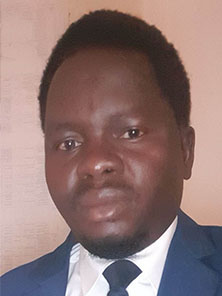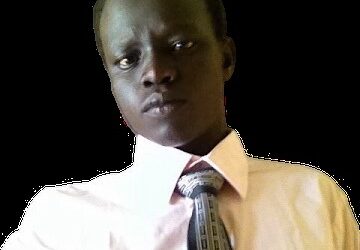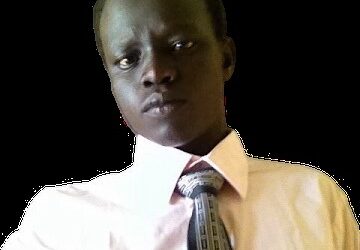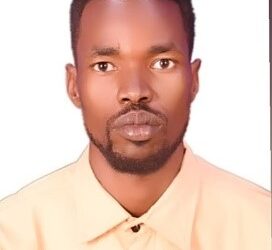By Gama Hassan Oscas
South Sudan, the world’s youngest nation, has faced numerous challenges since gaining independence in 2011. A key milestone in the nation’s quest for stability and democratic governance is the scheduled general elections set for December 2024. However, the environment and timing of these elections raise serious concerns about their credibility. The lack of freedom of speech and assembly, the suppression of dissenting voices, and the existence of parallel forces and militias threaten the legitimacy of the electoral process. In this critical opinion piece, we will delve into the intricacies of the situation and analyze whether these elections can truly be considered as a step towards democratic progress or merely a search for legitimacy.
The Absence of Freedom of Speech and Assembly
The cornerstone of any democratic society is the freedom of speech and assembly. It allows citizens to voice their opinions, engage in open dialogue, and hold their leaders accountable. However, in South Sudan, these fundamental rights have been systematically undermined, creating a hostile environment for political expression. The government has imposed strict restrictions on the media, civil society, and opposition parties, effectively silencing any dissenting voices.
Independent media outlets face harassment, censorship, and intimidation, leading to self-censorship and a lack of objective reporting. This leaves citizens uninformed and unable to participate meaningfully in the political process. Furthermore, individuals exercising their right to freedom of expression are met with hostility, arbitrary arrests, and threats, leaving them with little room to voice their concerns.
Similarly, the right to assemble peacefully is stifled through excessive bureaucratic red tape and security clearance requirements. Even holding workshops in hotels necessitates permission from the government, creating a cumbersome process that hampers civil society’s ability to engage in meaningful public discourse. This suppression of freedom of speech and assembly raises questions about the government’s commitment to democratic principles and casts doubts on the credibility of the upcoming elections.
South Sudanese in Refugee and Displaced Camps
The plight of South Sudanese in refugee and displaced camps is an issue that cannot be ignored in the context of the planned elections. These individuals, forcibly displaced due to conflict and violence, represent a significant portion of the population whose voices must be heard. However, the lack of a conducive environment for credible elections raises concerns about their ability to participate in the electoral process.
Displaced populations often face barriers to voting, including logistical challenges, lack of information, and security risks. Without adequate provisions for their inclusion, the electoral process risks further marginalizing these vulnerable populations and undermining the legitimacy of the government that emerges from the elections.
The Elusive Goal of a Unified Army
A unified and professional military is crucial for the stability and legitimacy of any government. Unfortunately, South Sudan’s journey towards a unified army has been fraught with challenges. The existence of parallel forces and militias operating under different commands poses a significant risk for pre or post-election insurgencies. The scars of the post-2010 Sudan general elections serve as a stark reminder of how such divisions can lead to violence and instability.
A fragmented military undermines the notion of civilian control and poses a grave threat to the electoral process. A truly unified army that operates under the principles of neutrality and respect for civilian authority is essential for fostering an environment conducive to credible elections.
Opposition Parties and Freedom of Political Activity
A thriving democracy necessitates robust opposition parties that can freely participate in the electoral process. However, in South Sudan, opposition parties face severe challenges in mobilizing followers or voters due to the stifling of freedom of speech and assembly. The government’s control over the media and the strong-arm tactics employed to suppress dissenting voices have created an uneven playing field for political actors.
In contrast, the ruling party enjoys the freedom to conduct its activities without interference, regardless of whether it genuinely represents the will of the people. This disparity undermines the democratic spirit and raises doubts about the fairness of the electoral process.
In conclusion, the scheduled general elections in December 2024 are a critical juncture in South Sudan’s quest for democratic governance and stability. However, the environment and timing of these elections raise serious concerns about their credibility and legitimacy. The suppression of freedom of speech and assembly, the marginalization of displaced populations, the lack of a unified army, and the unequal treatment of opposition parties all cast a shadow over the electoral process.
For South Sudan to truly embrace democracy, the government must prioritize and safeguard the rights of its citizens, including the freedom of expression and assembly. The inclusion of all segments of society, including those in refugee and displaced camps, is essential for a credible and representative government to emerge. A unified army under civilian authority is critical for ensuring post-election stability, and a level playing field for all political actors is vital for a truly democratic electoral process.
The success of the upcoming elections will be a litmus test for South Sudan’s commitment to democratic principles and its ability to overcome the obstacles that have plagued its young history. To transition from a search for legitimacy to a credible election, South Sudan must address these pressing issues and create an environment that fosters open dialogue, inclusivity, and genuine democratic participation. Only then can South Sudan truly embark on the path towards a stable, democratic, and prosperous future.”




